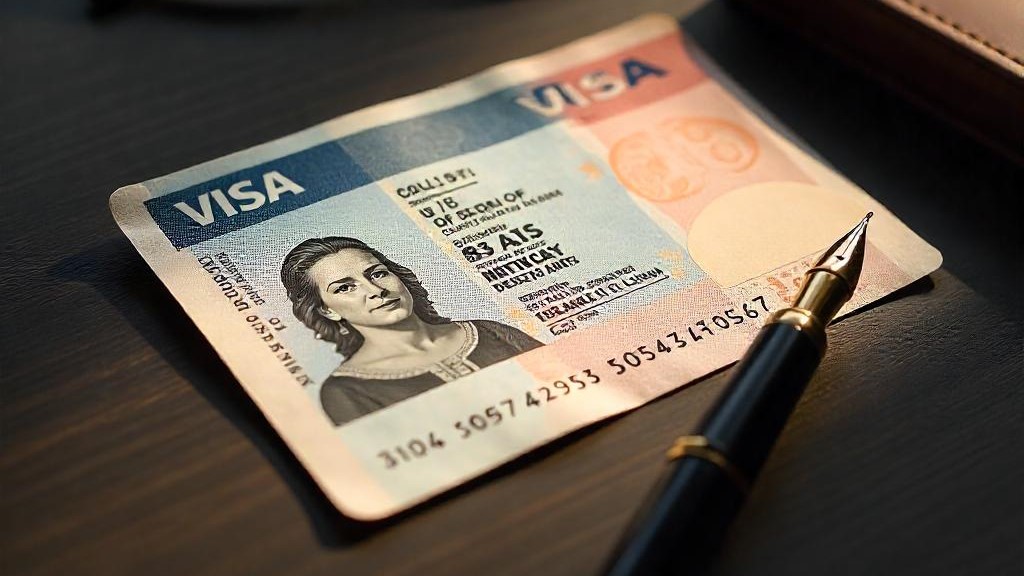A friendly yet thorough guide to the O1 visa for USA, covering who qualifies, how to get O1 visa, detailed application steps, duration, cost compared to H1B, and long-term strategy.

Here’s what questions pop up first: what is O1 visa for USA? It’s not just reserved for big-name celebrities. This visa is aimed at individuals who’ve truly distinguished themselves. Maybe you’ve led a ground breaking research project, had your writing published in major outlets, launched a fast-growing startup, or toured internationally as a performer.
There are two categories: O‑1A covers science, education, business, and athletics, while O‑1B is for arts, film, music, and television roles.
So, who can apply for O1 visa? If you’ve earned notable awards, held leadership roles, or been featured in respected media—that’s solid proof of achievement. And yes—does O1 visa need sponsorship? Absolutely. A U.S.-based employer or agent has to file Form I‑129 on your behalf.
All claims need documentation. Wondering how to get O1 visa? It starts with building a narrative that’s compelling, coherent, and backed by proof. And if you're planning for longer-term residence—can O1 visa apply for green card? Absolutely. Many applicants transition via the EB‑1A category when their achievements meet that high standard.
This is the heart of the guide—an enhanced roadmap on how to apply for O1 visa that covers planning, petitions, and practical tips from start to finish.
Step 1: Secure a U.S. Sponsor
Because does O1 visa need sponsorship is non-negotiable, you must find a U.S.-based employer or authorized agent ready to act as your petitioner. Early conversations about your role expectations and itinerary help make your case more compelling.
Step 2: Organize and Strengthen Your Evidence File
Collect original items like award certificates, published articles, contracts, pay records, and letters of recommendation. Make sure each item feeds into the central theme: why you're indispensable.
Step 3: Obtain Advisory Opinion Letters
You’ll need at least one advisory opinion from a peer group or labour union verifying that your role requires someone of your caliber. For O‑1B applications, this letter can be the difference between approval and delay.
Step 4: Draft a Tight, Persuasive Petition Letter
Your sponsor’s petition letter is pivotal. It should summarize your career story, link your achievements to your proposed U.S. role, and make a clear argument for why you deserve the visa.
Step 5: File Form I‑129 with USCIS
Submit the petition letter, Form I‑129, your evidence, advisory opinion, and U.S. itinerary all in one vetted, organized packet. Follow the USCIS I‑129 instructions to the letter.
Step 6: Decide on Processing Speed
You can choose regular processing, which typically takes 60–90 days, or upgrade to premium processing and get a USCIS decision within 15 calendar days. Premium is ideal if your start date is tight.
Step 7: Responding to RFEs (Request for Evidence)
If USCIS issues an RFE, treat it carefully. Gather additional proof promptly and respond as quickly as possible—delays here can add up to 60 days or more.
Step 8: Consular Processing or Change of Status
After USCIS approves, you’ll either apply for a visa stamp at a U.S. consulate or continue your status in the U.S. if you’re already here.
That’s the full breakdown of how to apply for O-1 visa. And if you want help avoiding missteps and delays, contact Beyond Border.
You’re probably thinking: how long does O-1 visa take to process? It depends on three main factors:
So the overall timeline for how long does it take to get an O1 visa can be as short as 4 weeks with premium processing and strong preparation—or up to 5 months if delays come up. You can check USCIS updates on their processing times page.

Curious about totals? Around 18,000–20,000 O‑1 visas are approved each year. Who can apply for O1 visa and gain approval? Generally, successful applicants are artists, scientists, founders, athletes, or academics—anyone who can offer solid documentation of standout performance.
Remember, even great careers need proof. It's the depth and clarity of your documents that often determine success.
Let’s talk cost: how much does it cost to apply for H1B visa versus the O‑1?
The H‑1B involves filing fees, legal costs, and uncertainty due to the lottery and cap limits. The O‑1 bypasses those hurdles, offers faster processing, and rewards merit—though it may cost more upfront. Also, how to apply for O1 visa is more straightforward—no chance of lottery, no institutional quotas. With strategic guidance from Beyond Border, many professionals find the O‑1 delivers better clarity and control.
Ready to Begin? Partner with Beyond Border
Now you know what are the requirements for an O1 visa, how to get O1 visa, and exactly how to apply for O1 visa.
If you're considering a by-the-book route to citizenship, we also help with can O1 visa apply for green card strategies. Let’s get started—reach out to Beyond Border.